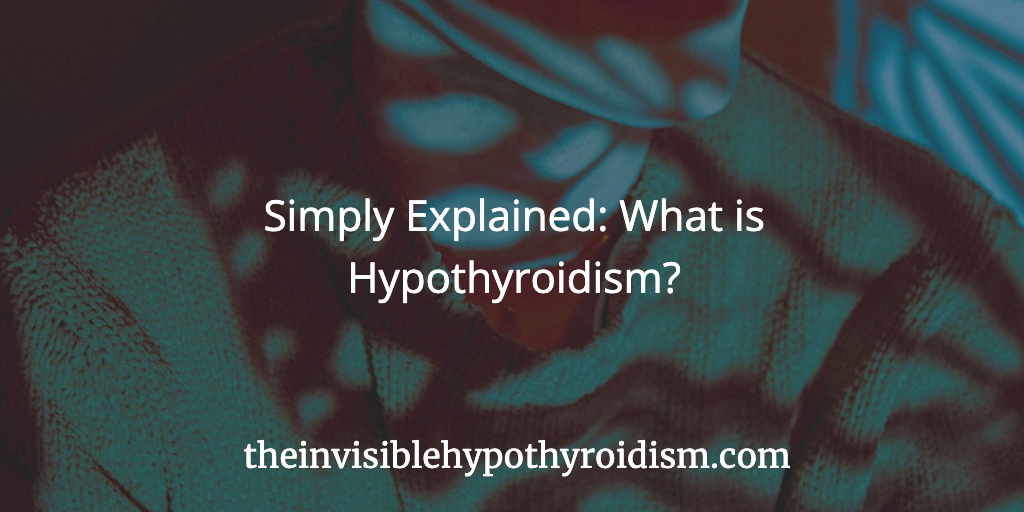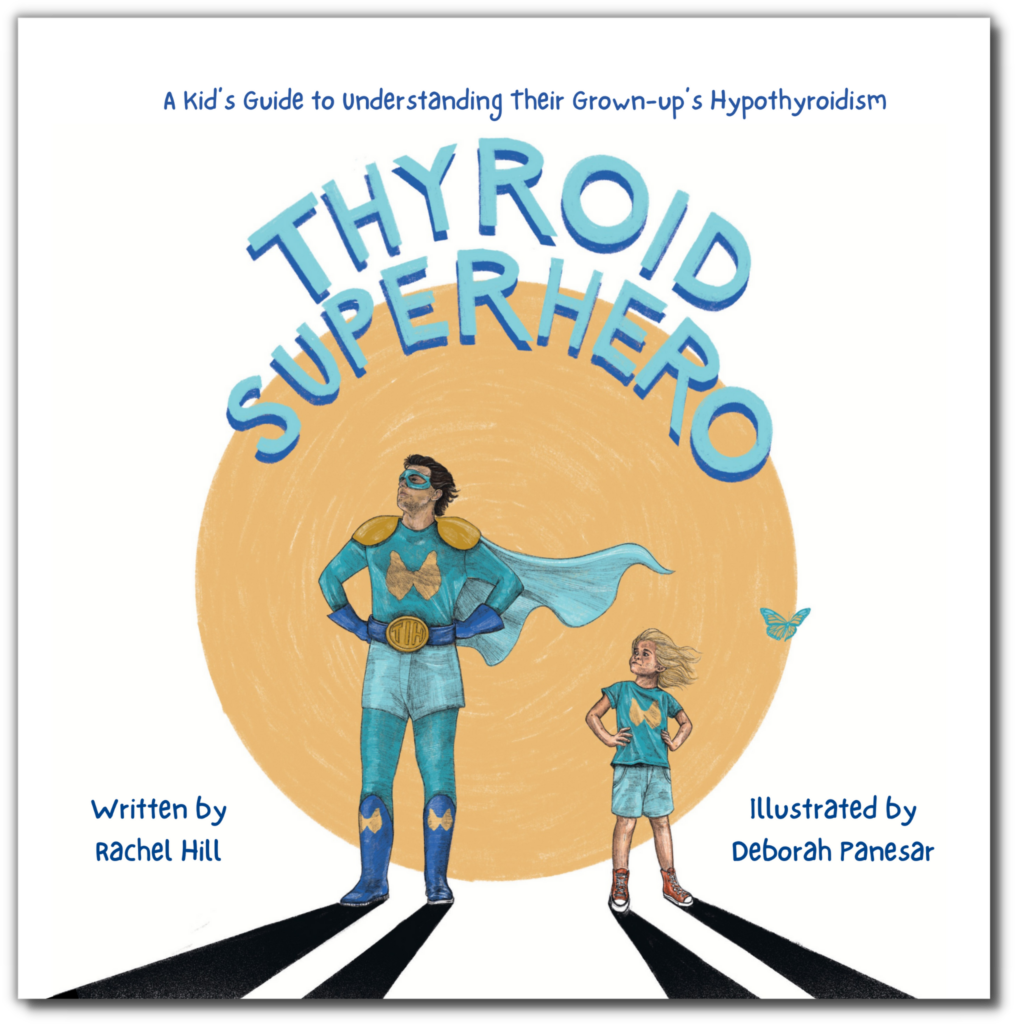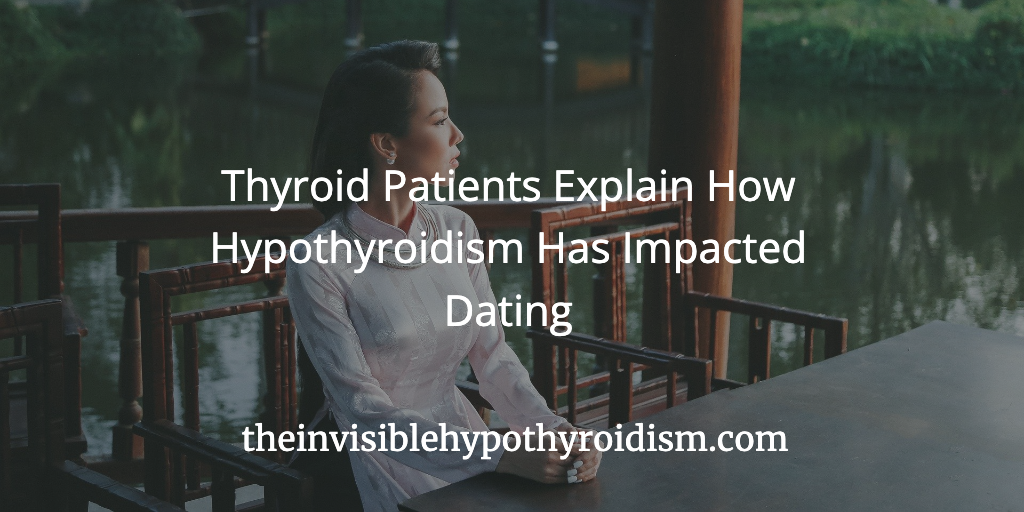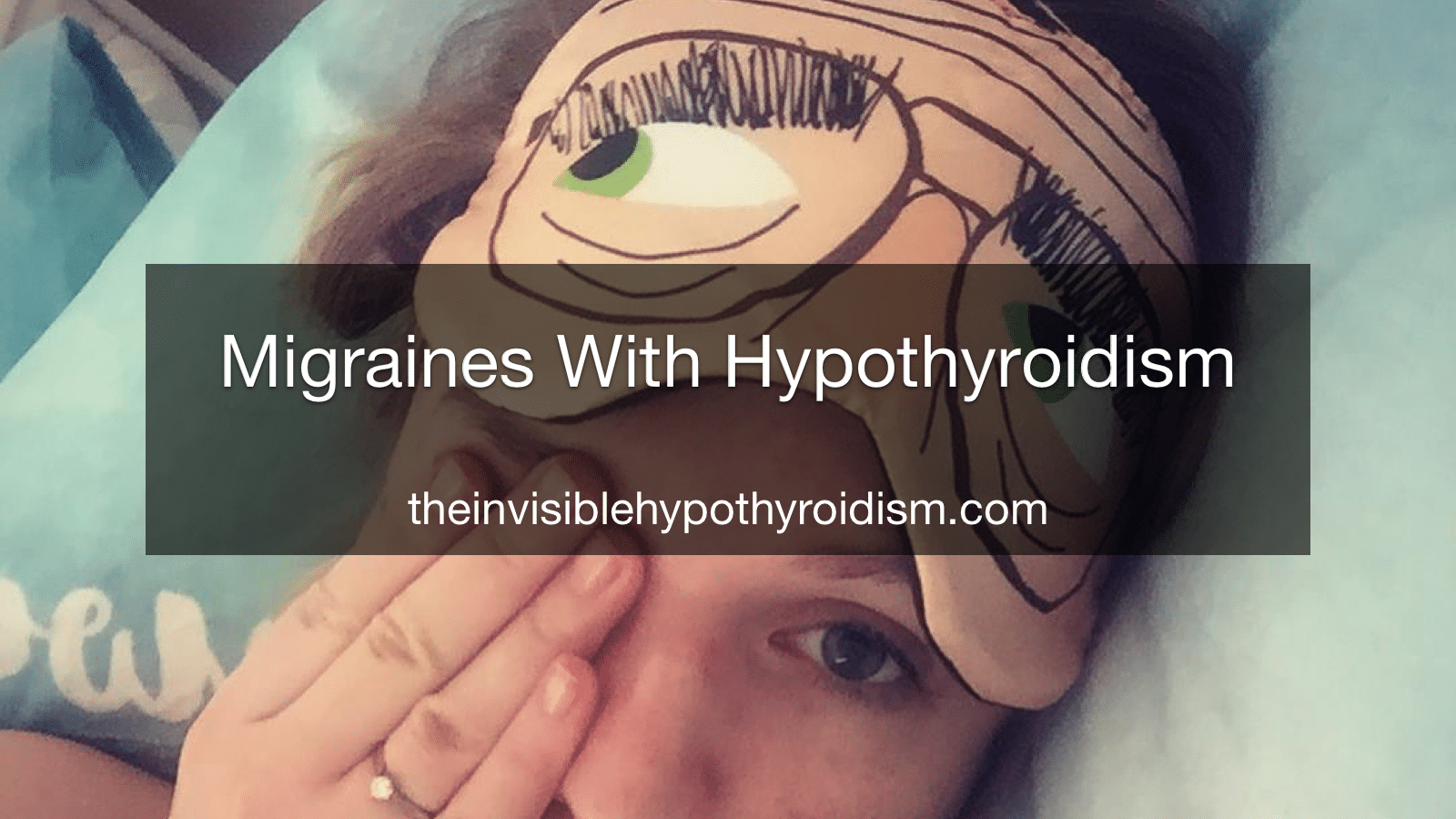Originally published on 5th March 2016 Last updated on 10th June 2024
Hypothyroidism, also called an underactive thyroid or thyroid disease, is a condition where the thyroid gland (a butterfly-shaped gland in the neck) does not create enough thyroid hormone.
The five hormones a healthy thyroid produces are: T1, T2, T3, T4 and Calcitonin. The most important are T3 and T4, with T3 being the most active.
Note: T1 and T2 may be made outside of the thyroid gland (debated).
What Are Thyroid Hormones Used For?
Thyroid hormones are needed for every process, every cell and every function within the body, so when they go wrong, i.e. are too low, a lot of other stuff can go wrong too!
This can include:
- metabolic function
- sensitivity to heat
- cold intolerance
- muscle aches and pains
- fatigue, adrenal problems
- vitamin deficiencies..
- hair loss
the list goes on. See a full list of symptoms here.
The main purpose of thyroid hormones, produced by the thyroid gland, is to ensure the metabolism is running properly.
The metabolism’s job is to produce heat and fuel. Heat to keep us warm and fuel to give us energy.
However, if we don’t have enough of those hormones, our metabolism won’t work properly and cannot provide us with adequate heat and fuel.
How Does Hypothyroidism Affect People?
People with an hypothyroidism, often have a slow metabolism, with symptoms associated with a slow metabolism, such as cold intolerance (from the lack of heat made) and extreme tiredness and weight gain (from the lack of calories burned to make energy).
If left untreated for a long time or non-optimally treated, other on-going symptoms include those listed here and other health conditions it can cause or contribute to are shown here.
Hypothyroidism is classed as a chronic health condition or ‘chronic illness’.
Hypothyroidism affects its hosts differently, as some people report taking their medication each day and feeling fine, whereas other patients report that their medication does not help them, or that it did at one time, but not anymore.
The Issue of Treatment
This can be made worse by doctors not listening to their thyroid patients’ worries and suggestions about links to other health conditions.
Signs that their medication isn’t working well can include on-going fatigue, muscle aches, mental health issues such as depression, postnatal depression, anxiety, adrenal problems, vitamin deficiencies and diagnoses of fibromyalgia and chronic fatigue syndrome, to name just a few.
Ultimately, once thyroid levels are optimal it tends to mean that the hypothyroidism is being optimally treated, so most symptoms should start to disappear, but support for other possible problems like vitamin deficiencies and adrenal issues will need to be in place until they recover, too.
Ongoing monitoring to maintain good thyroid levels are important, which should also help keep vitamin levels and adrenal health in check, too, along with any other associated conditions.
Many thyroid patients feel their GP isn’t sympathetic enough, or willing to run all the tests they need to properly check and monitor their thyroid levels, so some turn to ordering their own additional tests.
Some thyroid patients also report their doctors being unhelpful in regards to considering other medication options, if standard T4-only medication doesn’t help them, as well as considering the fact that many other problems or health conditions can be linked to low thyroid function, especially if it’s inadequately treated.
Where To Turn for More Support?
You can find lots more, more-detailed posts on my blog about the many other areas of being hypothyroid, but this post is the general overview!
See this page too, if you’re new to the diagnosis of hypothyroidism and there is also my book, aimed at those who are new to understanding their hypothyroidism, underactive thyroid or Hashimoto’s Be Your Own Thyroid Advocate: When You’re Sick and Tired of Being Sick and Tired.
You can click on the hyperlinks in the above post to learn more and see references to information given
See also:
You, Me and Hypothyroidism: When Someone You Love Has Hypothyroidism, a book for those who know someone with hypothyroidism.
A Book for Our Children:
Thyroid Superhero: A Kid’s Guide To Understanding Their Grown-up’s Hypothyroidism, which helps children to understand their caregiver’s thyroid medication, flare days, symptoms and much more.









8 Comments
Cheryl
May 17, 2024 at 1:06 amHi there been on levothyroxine for almost 20 years
Dosage fluctuates
I also have been diagnosed with fibromyalgia
My body was feeling out of whack
My Dr does thyroid check every 6 months
This month my THS is @ 6.430 elevated
He is keeping me at my current dosage of levothyroxine 100 mg, 1 tablet every morning first thing.
I get so fatigued and brain fog, and my armpits itch!
What is your recommendation?
Greatly Appreciate
Cheryl
Tamanna
February 1, 2024 at 10:24 pmHi Rachel
I have diagnosed with hypothyroidism back in January 2023 my level that time was 4.07 I am living in United state
So after I diagnosed my RE put me on 25mcg of levothyroxine until my level gets down I still on medication 25mcg of levothyroxine I am currently six week pregnant my TSH reflex free T4 is 2.34 my RE said continue your levothyroxine 25mcg what is your opinion.
Laura Soderbaum
December 13, 2023 at 4:43 pmMy name is Laura & to be perfectly blunt I am scared! I am 48 years old and have been working as a waitress since I was 16 years old. However, working in a restaurant does not have affordable health insurance, therefore I rarely went to the doctors and I eventually obtained employment w/great benefits. For the past 7 years, I successfully managed both jobs and continuously received kind words on my performance evaluation.
The end of 2021 two close friends & 2 family members pass away suddenly, one was a suicide, it was devastating but I never took the time to deal with it. Fast forward to the end of 2022, l lost a significant amount of weight, hair loss, falling asleep at my desk, my face looked weird, would lose my keys, forget where I put my debit card, and my bathroom trips were out of control.
About a year ago today, I was accused of being drunk. I was mortified, had to blow into a breathalyzer. (0) I was suspended without pay for falling asleep at my desk, being tardy., my files were removed from office and put on display in our training room. All my colleagues were aware it was because I was being punished. The most horrible thing ever, I was seen on camera placing a resident’s money order in the wrong place, which was never found, but cashed. Did I mention my doctor wrote a letter to HR informing them of my Thyroid Condition. I was diagnosed in February 2020, but due to the Pandemic, I never had the opportunity to follow up and have a true understanding. I now know the stress played a role in making my thyroid condition worse. Tomorrow, I have a hearing for possible termination.& I don’t know what to do. Thanks for taking the time to read this. I appreciate you very much for all you do.
Linda Ponsford
September 30, 2023 at 9:18 pmI have been given Levoxythyrine that has reduced my TSH from 6.43 down to 2.84, but my T3 and T4 are within the normal ranges.
My antimicrobial level was 352 last time I was tested.
I have been told I have nodules on my thyroid , how does this affect my condition?
Bill Shanks
April 15, 2019 at 11:05 amMy doctor started me on levothyroxine telling me my thyroid function was low. What does mean? What should I expect? I have been taking it six months and I don’t know of any changes.
Rachel Hill
April 15, 2019 at 11:07 amLow thyroid is the same as hypothyroidism. It means your thyroid hormone levels are low and so thyroid medication places those low levels. There are several different types of thyroid medication options and Levothyroxine is a T4-only medication, but if this doesn’t seem to be working then it may be that you are not converting enough of this to T3 (as we need both T3 and T4). I would ensure you have your Free T3 and T4 levels tested to check. It could mean a medication with direct T3 could work better for you.
Sherry
February 24, 2018 at 12:31 pmHelp doc wont listen my TSH is 14.5 my thyroid is dead due to rad i cant take T4 med only end up in hospital but doc dont listen
Rachel Hill
February 26, 2018 at 5:59 pmHi Sherry,
Your doctor should be considering other medication options for you such as T3 and NDT. If they refuse, could you seek another’s opinion, please?